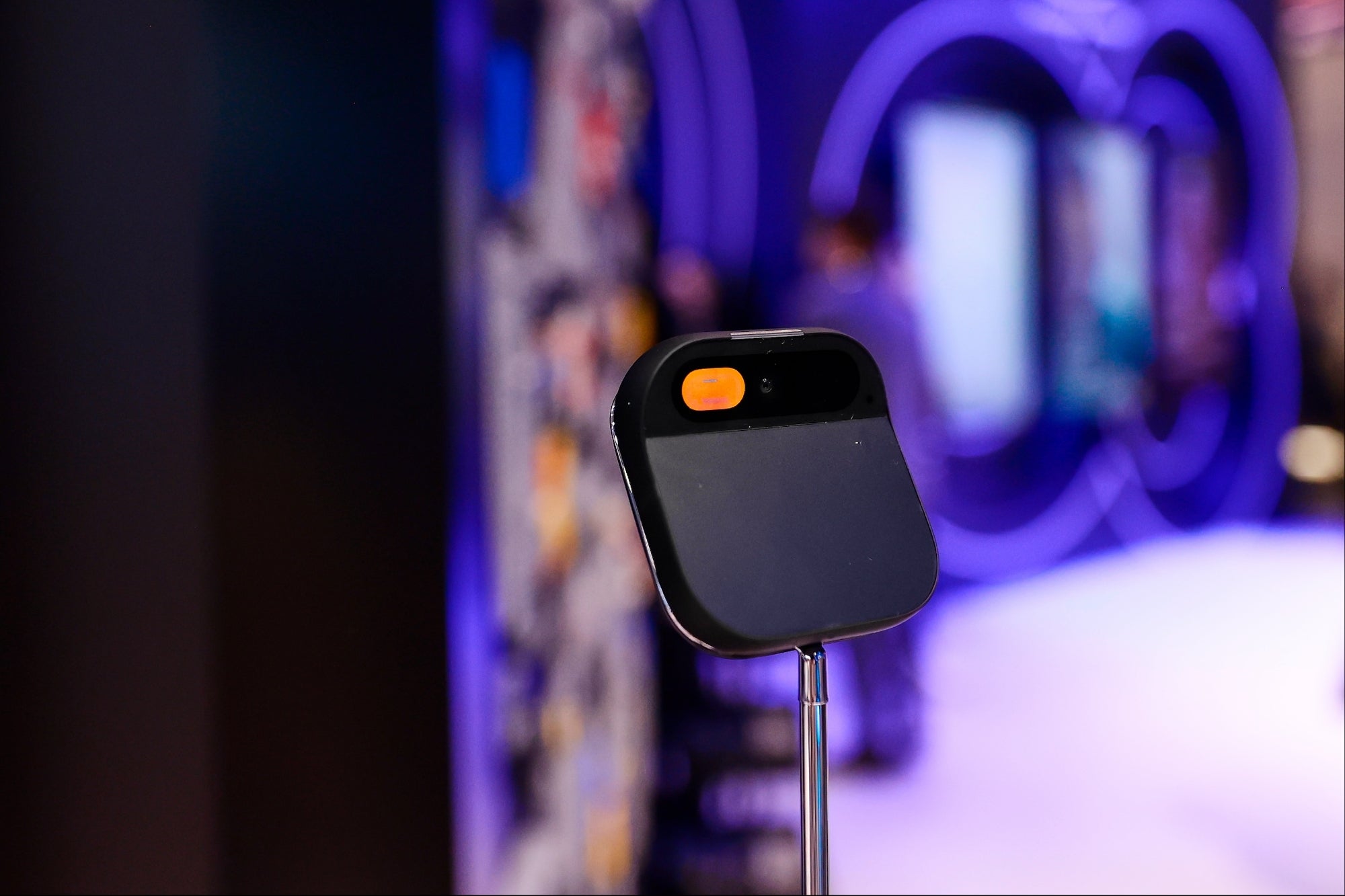Earlier this year, Humane was a promising wearable AI startup aiming to create a device to replace a smartphone. It has raised over $200 million from big names including Microsoft, OpenAI CEO Sam Altman and Salesforce CEO Marc Benioff to develop a device that can make calls, send texts, answer questions and translate from one language to another. The pin has a laser projector that beams a screen onto your palm, which can then be manipulated by the user by tilting the palm or pressing the index finger and thumb together.
Its husband-and-wife co-founders, Imran Chaudhri and Bethany Bongiorno, have solid reputations as Apple’s former directors of design and software engineering, respectively. Chaudhri first offered insight into Ai Pin during a May 2023 TED Talk that has had nearly two million views.
Now more customers are returning Humane’s flagship product, the $699 Ai Pin, than buying it.
Related: This futuristic wearable smartphone alternative projects a screen onto your palm
 Humane Ai Pin screen. Credit: Angel Garcia/Bloomberg via Getty Images
Humane Ai Pin screen. Credit: Angel Garcia/Bloomberg via Getty Images
The Verge obtained internal data Wednesday that shows Humane’s $9 million in lifetime sales of Ai Pin have been eclipsed by $1 million worth of product returns since the products were released in April. From May to August, within a few months of release, according to data, more Ai Pins were shipped than purchased.
What happened to Ai Pin?
Despite a promising start and acclaim as one of TIME’s best inventions of 2023, the Ai Pin promised features that early reviews have not fully delivered.
YouTube tech reviewer Marques Brownlee, who has nearly 20 million subscribers, said Pin was “the worst product I’ve ever reviewed.” Brownlee said it took a long time to answer questions and things often went wrong. He said it also overheated at times, could not hear him more than once and felt like a “warm puck on his chest” which was noticeable throughout the day.
Victoria Song of The Verge tested the translate feature and found that it couldn’t translate simple sentences into Japanese and Korean.
Engadget’s Cherlynn Low noticed that when she tried to take more pictures, the device overheated and shut down because it was over-engineered. Low also said it was a cloudy, rainy day, she couldn’t read the screen on her palm.

Humane Ai Pin. Credit: Joan Cros/NurPhoto via Getty Images.
If a customer returns the pin, Humane can’t sell it as a refurbished product, according to The Verge, due to T-Mobile’s restrictions that link one device to one person.
So far this year, around 10,000 pins have been sold, falling short of Humane’s annual goal of 100,000, according to The New York Times.
